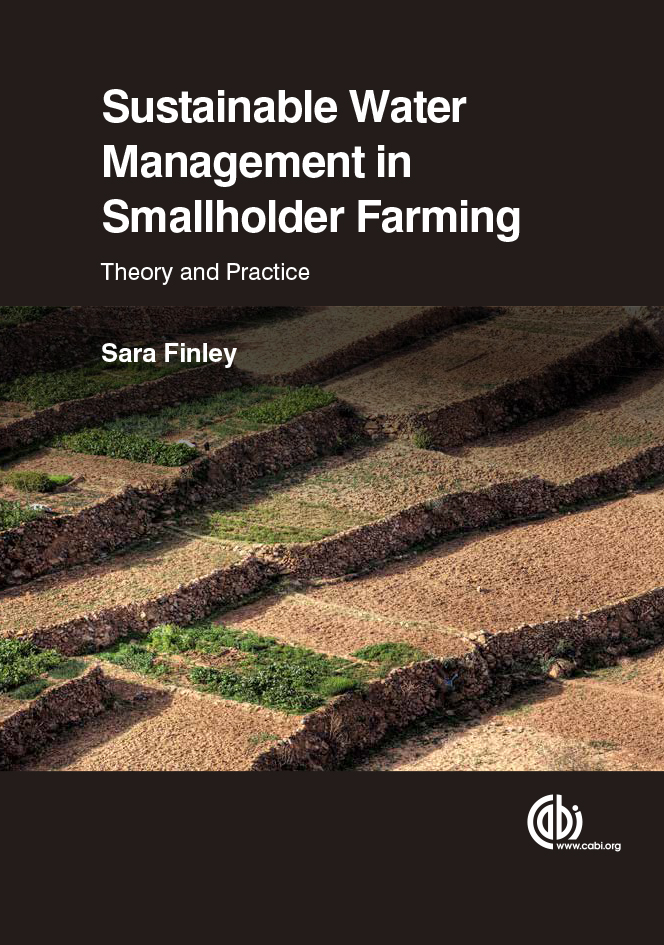This month, Sara Finley puts the spotlight on popular education tools for sustainable development. Her new book, Sustainable water management for smallholder farming: Theory and Practice is now available in the CABI bookstore.
Can I speak to the manager?
Fundamentally, water management is not really about managing water, it’s about managing people. Water in nature ‘manages’ itself- its how we interact with it as water users that can cause problems. Yes, each and every one of us are water managers! To me, that means that the key to sustainable water management lies in developing the ability of water users, both big and small, to make decisions that promote the long-term quantity and quality of their local water supplies.
Agriculture is, and likely always will be, our biggest global water use category. It is also a leading cause of water pollution, and changes in water availability for farming are among the most widely felt impacts of climate change. The efficient use of water in growing food, and preserving the health of agricultural watersheds, are some of the most quintessential challenges of our age. Yet despite of the overwhelming importance of these topics, I often lament that the resources available to learn about them seem to be primarily written by and for academics and policymakers, and not for everyday water mangers like you and I. To make matters worse, most of it focusses on irrigated commercial agriculture, which occupies only a tiny fraction of the world’s productive farmland.
Of all the farmers in the world, the vast majority work small plots of only a few hectares in size, relying exclusively on water from rain, not irrigation. These farmers, working with little to no mechanization, often on marginal lands and with few resources, produce over 80% of the food supply in most countries. Smallholdings sustain the livelihoods of over 2 billion people worldwide, and yet little attention is paid to their concerns in mainstream agricultural literature and crop research. As policymakers finally begin to recognize the crucial role that small farmers will play in feeding an increasingly hungry and water-scarce world, accessible information from and for these small producers is now more critical than ever.
The aim of writing this book was to make some fundamental information about water dynamics in agriculture more accessible to the people most affected by it. Scholars of agriculture might find it oversimplified, but I’d contend that that is precisely the point! Like with all things, good water management relies on good information. There is a real need for research and resources that speak directly to practitioners, especially those working on the front lines in water-constrained environments.
Water management in agriculture is not just about water- it is inextricably linked to soil health, plant choices and nutrient management. As the perils of large-scale irrigated agriculture become obvious in the form of drained water sources and widespread land degradation, it seems clear that a transition toward efficient rainfed farming, water harvesting, and agro-ecology is desperately needed. Luckily, this kind of knowledge already exists, but needs reviving- readers might find similarities in my book between ‘sound water management’ and farming practices that were in widespread use before the advent of industrial-scale agriculture. Small, diverse plots that prioritize soil health over brute production have sustained agricultural communities for thousands of years, and small farmers are the locus of the kind of innovations that will be required to face the emerging challenges of farming in a changing climate. I’m convinced that smallholder farmers, and the professionals and organizations that support them, can be key players in a transition toward a sustainable agriculture future. My only hope is that books like mine can help equip them for the challenge.
By Sara Finley

